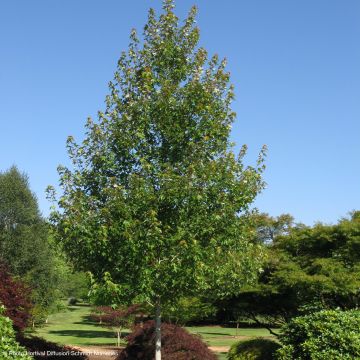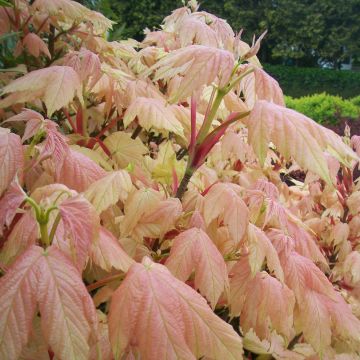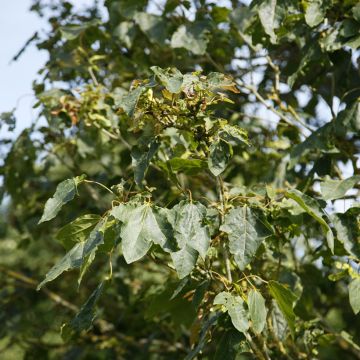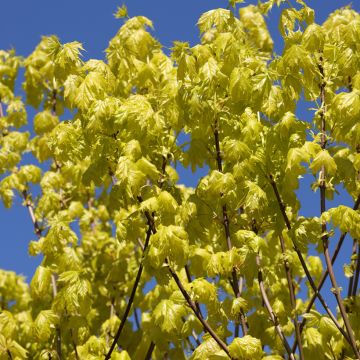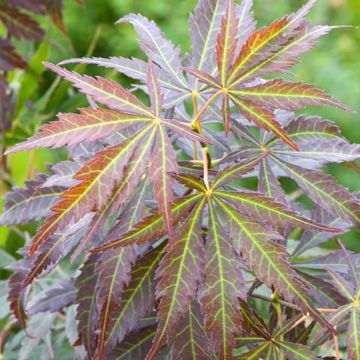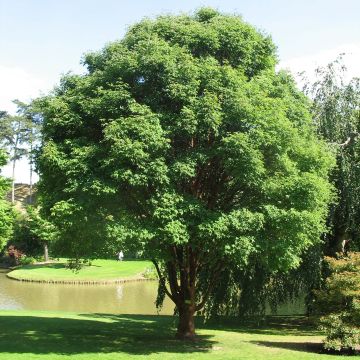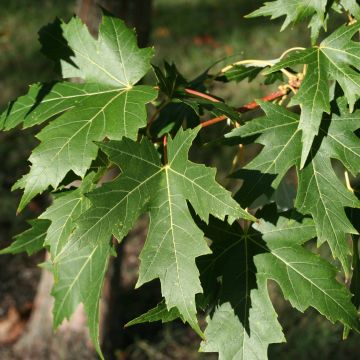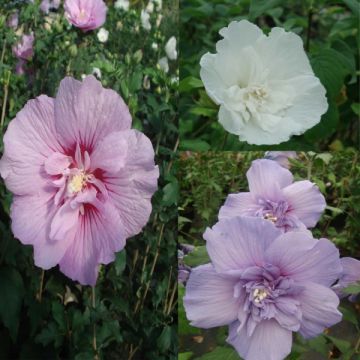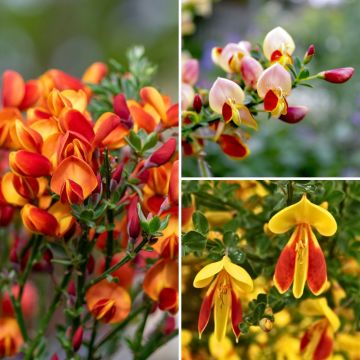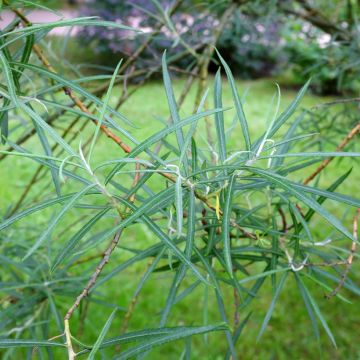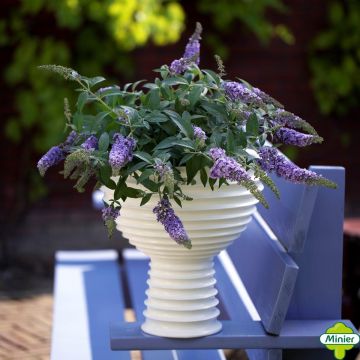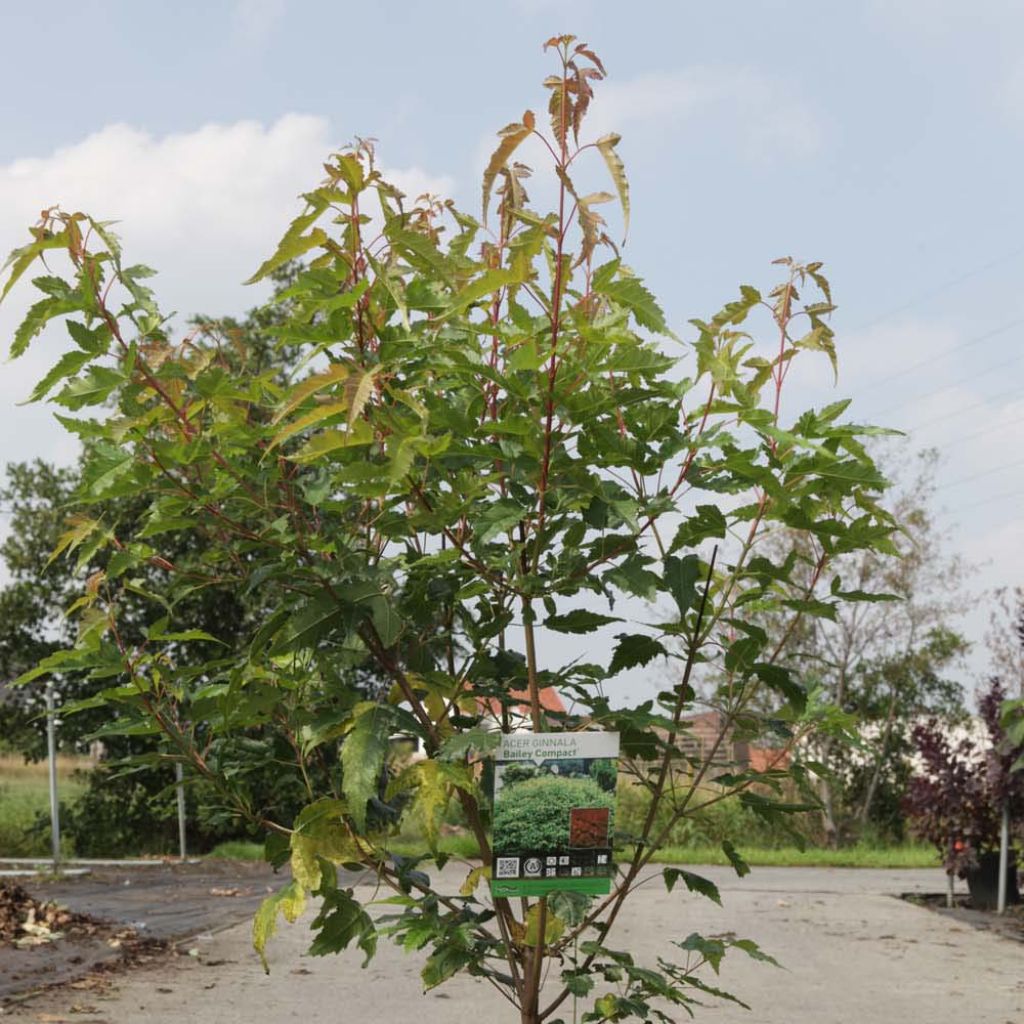

Acer tataricum subsp. ginnala Bailey Compact - Maple
Acer tataricum subsp. ginnala Bailey Compact - Maple
Acer tataricum subsp. ginnala Bailey Compact®
Amur maple, Crimson-leaved maple
A beautiful-sized plant, well ramified, planted upon its arrival with a tightly packed root ball. I am awaiting the resumption of growth to complete my praises.
Yves, 01/11/2023
Special offer!
Receive a €20 voucher for any order over €90 (excluding delivery costs, credit notes, and plastic-free options)!
1- Add your favorite plants to your cart.
2- Once you have reached €90, confirm your order (you can even choose the delivery date!).
3- As soon as your order is shipped, you will receive an email containing your voucher code, valid for 3 months (90 days).
Your voucher is unique and can only be used once, for any order with a minimum value of €20, excluding delivery costs.
Can be combined with other current offers, non-divisible and non-refundable.
Home or relay delivery (depending on size and destination)
Schedule delivery date,
and select date in basket
This plant carries a 24 months recovery warranty
More information
We guarantee the quality of our plants for a full growing cycle, and will replace at our expense any plant that fails to recover under normal climatic and planting conditions.

Would this plant suit my garden?
Set up your Plantfit profile →
Description
Acer ginnala 'Bailey Compact' is one of the easiest maples to grow, regardless of the climate. This compact form of the Amur maple forms a large, bushy, rounded shrub, as wide as it is tall, which will thrive in gardens of all sizes, whether planted individually or in a free hedge. Another major advantage of this variety is its small foliage, which is a bright green colour and turns rich shades of yellow, orange, and scarlet red in the autumn, and is adorned with winged fruits in a beautiful red hue. It will thrive in a sunny exposure, and prefers well-drained soil, without excess limestone.
Acer tataricum subsp. ginnala is the maple with the most extensive east-west distribution area, from Austria to the far eastern reaches of Siberia. This species is also known as the Manchurian maple, Tartary maple, or Siberian maple, as it is widespread in these regions. This extremely vast distribution area is indicative of the adaptation capabilities of this small maple to varied and often harsh environments and climates, with alternating cold winters and dry summers.
The cultivar 'Bailey Compact', selected in the USA, stands out for its more compact habit and reduced growth. It is a beautiful, bushy shrub, with fairly rapid growth, reaching an average maturity of 2.50 m (8.2 ft) in all directions. The basal branches split into thin, arching stems resembling canes. The deciduous leaves are opposite, 5 cm to 10 cm (2 in to 3.9 in) long, deeply divided, with irregularly dentate margins, and are a shiny dark green colour. In autumn, the foliage turns yellow-orange and finally bright red, before falling fairly quickly. In June, discreet clusters of fragrant, cream-white flowers, 3 cm (1.2 in) long, bloom and then give way to winged fruits that are initially red to pink, then brown, and remain decorative for a long time. The bark of this maple is a greyish-brown colour, striated somewhat like that of serviceberries. Under optimal growing conditions, this shrub can live up to 150 years.
An excellent shrub for a free hedge, 'Bailey Compact' is perfect when planted individually in a small garden, amidst a bed of evergreen shrubs or perennials that provide winter presence. It can be paired with Teucrium chamaedrys, Iberis sempervirens, Ophiopogon, creeping euonymus, or Bergenia. In a free hedge, there are numerous possibilities: plant alonside Cotinus, deciduous euonymus, Indigofera gerardiana, spring or Japanese spiraeas, viburnums, Neilia affinis, and many others. It can also be planted in front of large trees to create an intermediate vegetal screen. This shrub, often grown as a standard in gardens, can also be trained as a bonsai.
Tip: Prune every 3 to 5 years to balance the branches and maintain a harmonious habit.
Report an error about the product description
Acer tataricum subsp. ginnala Bailey Compact - Maple in pictures
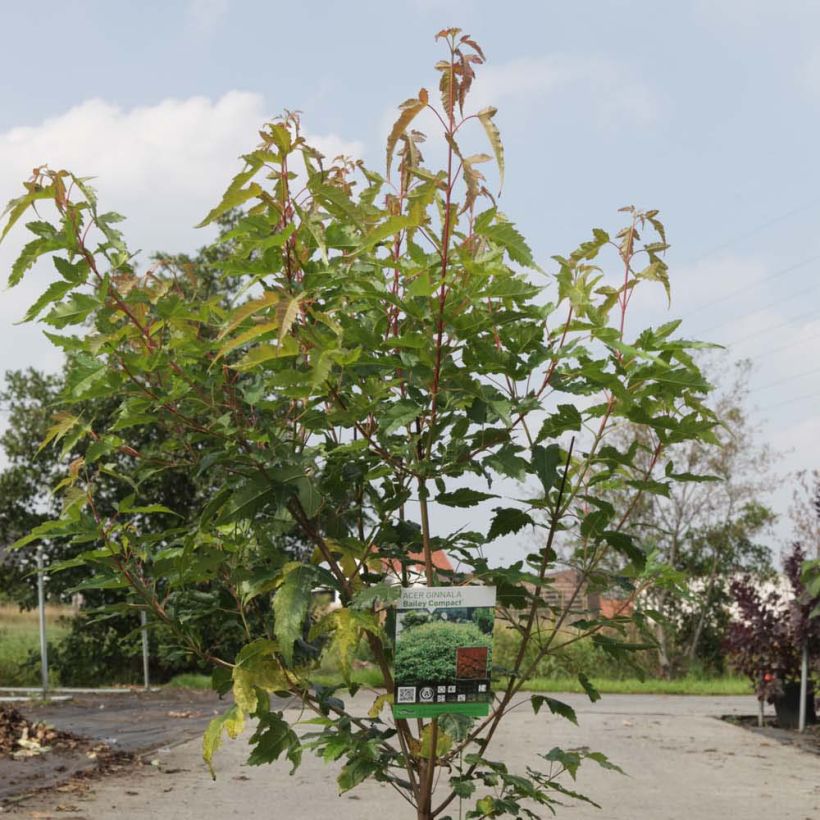

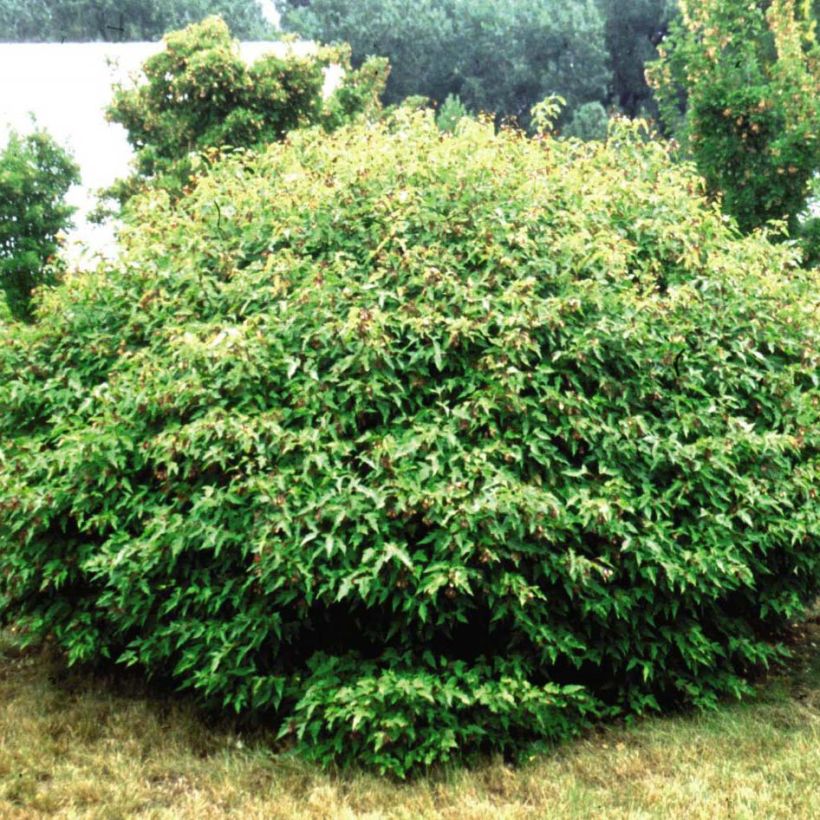

Plant habit
Flowering
Foliage
Botanical data
Acer
tataricum subsp. ginnala
Bailey Compact®
Aceraceae
Amur maple, Crimson-leaved maple
Cultivar or hybrid
Other Acer - Maple tree
View all →Planting and care
Plant Acer ginnala 'Bailey Compact' in spring or autumn in any deep soil without excessive limestone. While it prefers moist soils where its growth will be faster, the bush adapts to much less favourable conditions and withstands heat and drought once established. Choose well-drained soil. If your garden soil is very heavy and compact, incorporate compost and coarse sand (or gravel) when planting to lighten it. Position it in a sunny position, but not in scorching sun. It also dislikes semi-shade. Beware of strong winds. Keep the soil moist during the first two or three summers after planting. Mulching can be beneficial to maintain good soil moisture in hot climates, until the plant becomes established. Pruning is necessary for young plants, and then every 3 years to balance the branches and maintain a harmonious habit. Do not prune after December as the sap rises very early.
Planting period
Intended location
Care
-
, onOrder confirmed
Reply from on Promesse de fleurs
Similar products
Haven't found what you were looking for?
Hardiness is the lowest winter temperature a plant can endure without suffering serious damage or even dying. However, hardiness is affected by location (a sheltered area, such as a patio), protection (winter cover) and soil type (hardiness is improved by well-drained soil).

Photo Sharing Terms & Conditions
In order to encourage gardeners to interact and share their experiences, Promesse de fleurs offers various media enabling content to be uploaded onto its Site - in particular via the ‘Photo sharing’ module.
The User agrees to refrain from:
- Posting any content that is illegal, prejudicial, insulting, racist, inciteful to hatred, revisionist, contrary to public decency, that infringes on privacy or on the privacy rights of third parties, in particular the publicity rights of persons and goods, intellectual property rights, or the right to privacy.
- Submitting content on behalf of a third party;
- Impersonate the identity of a third party and/or publish any personal information about a third party;
In general, the User undertakes to refrain from any unethical behaviour.
All Content (in particular text, comments, files, images, photos, videos, creative works, etc.), which may be subject to property or intellectual property rights, image or other private rights, shall remain the property of the User, subject to the limited rights granted by the terms of the licence granted by Promesse de fleurs as stated below. Users are at liberty to publish or not to publish such Content on the Site, notably via the ‘Photo Sharing’ facility, and accept that this Content shall be made public and freely accessible, notably on the Internet.
Users further acknowledge, undertake to have ,and guarantee that they hold all necessary rights and permissions to publish such material on the Site, in particular with regard to the legislation in force pertaining to any privacy, property, intellectual property, image, or contractual rights, or rights of any other nature. By publishing such Content on the Site, Users acknowledge accepting full liability as publishers of the Content within the meaning of the law, and grant Promesse de fleurs, free of charge, an inclusive, worldwide licence for the said Content for the entire duration of its publication, including all reproduction, representation, up/downloading, displaying, performing, transmission, and storage rights.
Users also grant permission for their name to be linked to the Content and accept that this link may not always be made available.
By engaging in posting material, Users consent to their Content becoming automatically accessible on the Internet, in particular on other sites and/or blogs and/or web pages of the Promesse de fleurs site, including in particular social pages and the Promesse de fleurs catalogue.
Users may secure the removal of entrusted content free of charge by issuing a simple request via our contact form.
The flowering period indicated on our website applies to countries and regions located in USDA zone 8 (France, the United Kingdom, Ireland, the Netherlands, etc.)
It will vary according to where you live:
- In zones 9 to 10 (Italy, Spain, Greece, etc.), flowering will occur about 2 to 4 weeks earlier.
- In zones 6 to 7 (Germany, Poland, Slovenia, and lower mountainous regions), flowering will be delayed by 2 to 3 weeks.
- In zone 5 (Central Europe, Scandinavia), blooming will be delayed by 3 to 5 weeks.
In temperate climates, pruning of spring-flowering shrubs (forsythia, spireas, etc.) should be done just after flowering.
Pruning of summer-flowering shrubs (Indian Lilac, Perovskia, etc.) can be done in winter or spring.
In cold regions as well as with frost-sensitive plants, avoid pruning too early when severe frosts may still occur.
The planting period indicated on our website applies to countries and regions located in USDA zone 8 (France, United Kingdom, Ireland, Netherlands).
It will vary according to where you live:
- In Mediterranean zones (Marseille, Madrid, Milan, etc.), autumn and winter are the best planting periods.
- In continental zones (Strasbourg, Munich, Vienna, etc.), delay planting by 2 to 3 weeks in spring and bring it forward by 2 to 4 weeks in autumn.
- In mountainous regions (the Alps, Pyrenees, Carpathians, etc.), it is best to plant in late spring (May-June) or late summer (August-September).
The harvesting period indicated on our website applies to countries and regions in USDA zone 8 (France, England, Ireland, the Netherlands).
In colder areas (Scandinavia, Poland, Austria...) fruit and vegetable harvests are likely to be delayed by 3-4 weeks.
In warmer areas (Italy, Spain, Greece, etc.), harvesting will probably take place earlier, depending on weather conditions.
The sowing periods indicated on our website apply to countries and regions within USDA Zone 8 (France, UK, Ireland, Netherlands).
In colder areas (Scandinavia, Poland, Austria...), delay any outdoor sowing by 3-4 weeks, or sow under glass.
In warmer climes (Italy, Spain, Greece, etc.), bring outdoor sowing forward by a few weeks.































